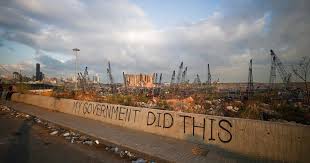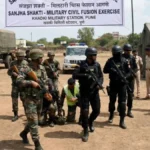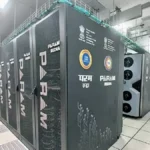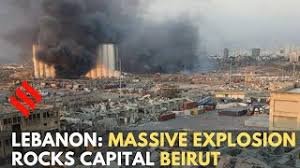Beirut Suffers Devastating Explosions: Escalation in Israel-Hezbollah Conflict
A series of powerful pager explosions ripped through Beirut, Lebanon, on [DATE], leaving a trail of destruction and casualties. The blasts, which remain under investigation, reportedly killed at least nine people and injured thousands more. The incident has heightened tensions in the already volatile region, sparking fears of a wider conflict between Israel and Hezbollah, a Lebanese militant group.
Blaming Fingers Point Towards Israel
Both the Lebanese government and Hezbollah have vehemently condemned the explosions, pointing the finger of blame at Israel. While the exact cause of the blasts is yet to be determined, Hezbollah claims it was a deliberate attack orchestrated by Israel. This accusation comes amidst heightened cross-border tensions between the two sides.
A Region on Edge: The Israel-Hezbollah Conflict
The current escalation has its roots in the long-standing conflict between Israel and Hezbollah. The militant group, which is backed by Iran, has a history of clashes with Israel along the Israel-Lebanon border. Last October’s Gaza war further strained relations, raising concerns about a potential spillover into Lebanon.
The pager explosions, if indeed confirmed to be an Israeli attack, would mark a significant escalation in the conflict. Hezbollah has vowed retaliation, raising the specter of a wider regional war. The international community is urging both sides to exercise restraint and avoid actions that could further destabilize the region.
Impact Beyond Lebanon
The devastating explosions have not only caused widespread damage and casualties in Beirut but have also reverberated across the border. According to reports, fourteen people were injured in neighboring Syria, highlighting the potential for a wider regional conflagration.

Why This News is Important
The Beirut explosions hold immense significance for several reasons. Firstly, they represent a dangerous escalation in the ongoing conflict between Israel and Hezbollah. The casualties and destruction inflicted raise serious concerns about the potential for a full-blown war.
Secondly, the incident underscores the fragility of stability in the Middle East. The region has a long history of conflict, and any major escalation could have far-reaching consequences. The international community is keenly watching developments in Lebanon, urging both Israel and Hezbollah to de-escalate the situation.
Thirdly, the explosions highlight the vulnerability of civilian populations in the midst of armed conflict. The indiscriminate nature of the blasts resulted in numerous civilian casualties, raising questions about the rules of engagement and the protection of civilians in war zones.
Historical Context: A Longstanding Conflict
The roots of the current crisis lie in the decades-old conflict between Israel and Hezbollah. Hezbollah emerged as a powerful political and military force in Lebanon following Israel’s withdrawal from southern Lebanon in 2000. The group is considered a terrorist organization by Israel, the United States, and several other countries.
Since its formation, Hezbollah has been engaged in a number of armed conflicts with Israel. The most notable of these was the 2006 war, which resulted in widespread destruction and casualties on both sides. The current tensions stem from the recent Gaza war and ongoing Israeli airstrikes in Syria, which Hezbollah considers to be acts of aggression.
Key Takeaways from This News: Escalation in the Middle East
| Takeaway | Description |
|---|---|
| 1 | Devastating explosions in Beirut, Lebanon, kill at least nine people and injure thousands. |
| 2 | The Lebanese government and Hezbollah accuse Israel of carrying out the attacks. |
| 3 | The incident marks a significant escalation in the ongoing conflict between Israel and Hezbollah. |
| 4 | The explosions raise fears of a wider regional war in the Middle East. |
| 5 | The international community is urging both sides to exercise restraint and avoid further destabilization. |
Important FAQs for Students from this News
What caused the Beirut explosions?
- While the exact cause is still under investigation, initial reports suggest that a large quantity of ammonium nitrate, improperly stored at the city’s port, ignited and exploded.
How many people were affected by the explosions?
- The explosions resulted in a devastating toll, with at least nine deaths and thousands of injuries reported. The damage to property and infrastructure was extensive.
Who is being blamed for the explosions?
- Both the Lebanese government and Hezbollah have accused Israel of carrying out the attacks. However, there is no concrete evidence to support these claims, and the investigation is ongoing.
What are the implications of the explosions for regional stability?
- The incident has significantly heightened tensions in the Middle East and increased the risk of a wider conflict between Israel and Hezbollah. The explosions could also destabilize the already fragile situation in Lebanon.
What is the international response to the Beirut explosions?
- The international community has expressed deep concern over the incident and called for a peaceful resolution of the crisis. Many countries have offered aid and support to Lebanon in the aftermath of the explosions.
Some Important Current Affairs Links

















